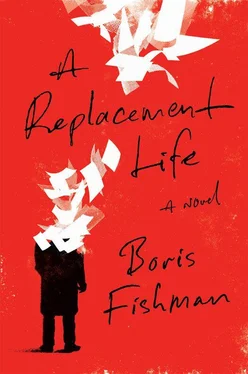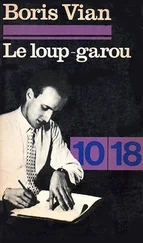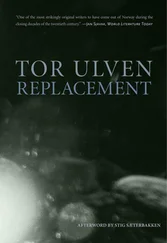It was too easy. Why had Slava waited to do this till now? He poured himself a celebratory glass of brandy from a bottle that Grandfather, who reacted with dismay to homes without high-quality alcohol, had pressed on him. Slava clinked the bottle with his glass. The peal rang through the room and loosed the Grandfather-genie once more. Again, the genie growled at Slava. How does the clever aspirant seal the certainty of impending success? it asked him. Slava slapped his forehead.
On Monday, he arrived at work bearing four bottles of brandy: one for Paul Shank, the editor of “The Hoot”; one for Mr. Grayson (you had to keep the home front well lubricated); one for Arch Dyson; and one for — what the hell — Beau Reasons himself. Stammering, Slava extended the bottles to their assistants, dropping only one out of nervousness, though unfortunately, this was before Beau’s assistant, and he dropped it on her foot. A small gift from his family cellar, he explained, on the occasion of…? He stared at the assistants, who awaited an explanation with puzzled distaste. Slava had failed to invent a plausible reason for the gifts; his grandfather would not have made such a rookie mistake, but the genie had wavered back into the bottle and not spoken again.
“It’s a bribe!” Slava said hysterically, but this attempt at humor failed and he didn’t dare repeat it, his only solace that he had bombed before Paul Shank’s assistant, in the firmament of the magazine not the shiniest star though Shank was the editor of “The Hoot,” which was supposed to be a humor column. Maybe the assistant would feel solidarity and not say anything. Maybe the assistant would keep the bottle for himself! It was not the tsar who failed his people but the ministers, the meddling middlemen! Slava returned to his desk jailed by a mix of anticipation, confusion, resentment, and shame. No immediate word came from the editors’ wing. That could be good — he hadn’t screwed up too badly. And he remained buoyed by the secret of his editorial discoveries, like a woman who knows she’s pregnant but no one else does. Mere days later, Century assigned Slava (half assigned, with Devicki, but still) to a story. Coincidence? You make your own conclusions.
The conference room, filled with four times as many persons as usual, tingled with an impending holiday’s delirious atmosphere. Bodies crammed the slate floor and the panels over the air-conditioning vents, editorial assistants arrived with extra chairs, toes were boxed with apology, and in general everyone experienced (1) the tipsiness of being closer to one another than was the norm, and (2) the sudden collapse of hierarchy. In his corner, eyeing Arianna several seats down, Slava felt a swell of pride at being in some measure the cause of all the commotion.
At the head of the conference table, his forearms on the back of his chair, stood Beau. On the eve of his ascension to the crown of the masthead, Page Six at the New York Post had trotted out the most salacious thing it could wring out of the people he had met on his way to the top: “Beau is 60, looks 40, and acts 20,” an anonymous woman had said. This was untrue — wrinkles had settled around his eyes, and two silver wings flanked his butterscotch helmet of hair — but this hardly impugned his haledom. He wore a peach Winchester shirt and rolled a nugget of gum in the pink sea of his mouth with awesome control. The gum was a piece of news he was going to split open and get to the bottom of. (He was an old smoker.) Despite his name — his mother had a fetish for the South — Beau was as northern as the Union. He had started in newspapers: crime on Cape Cod, crime in Boston, crime in New York, over to Century . Apparently, they taught in journalism schools the magazine piece that had endeared him to Martin Graves, a complicated twenty-thousand-word two-parter, one of the first pieces about exoneration by DNA analysis, which had set free a man imprisoned eleven years for manslaughter.
Slava had read Beau’s famous story many times, but he couldn’t build a bridge from it to the Avery Coulter story. The Avery Coulter story gave up its secrets quite readily — it was a grid, Manhattan. The DNA piece was like some kind of Moscow or Paris — everything side streets, dead ends, parabolas, though its conclusion arrived with new force each time he read it, the mystery of which was only more frustrating. Slava studied Beau at the head of the conference table as if this would dislodge from the older man’s soul some clue to the information that eluded the younger. But it didn’t.
Beau was talking to Kate Tadaka. She clutched a phone in each hand and laughed into his ear, the plums of her cheekbones bruising into a blush. Kate edited the critics and collected National Magazine Awards in her spare time. Even at twenty feet, it was clear that she was someone who smelled as fine at the end of a long summer day as at the beginning. This filled him with an aimless, futile desire.
He switched to Arch Dyson, in cream linen. Here was a man to make cream linen look fine on a man. Now, Arch could be anywhere between forty and seventy-five. One day the previous year — had so much time passed since Slava’s embarrassment? — while Arch was perched in Mr. Grayson’s office, Slava took notes on the editor’s outfit down to the belt. The next weekend, instead of scrolling and typing, Slava shopped. On the way home, the bags tugged at his hands with the weight of two weeks’ salary, and he felt like an ostrich striding into the Century office on Monday, but he had purchased for himself an understanding of the American maxim “clothes make the man.” Indeed, several Juniors whistled and demanded to know the occasion for his lilac jacket and paisley tie. However, no matter how many times Slava strode past Arch’s office, the editor took no note of the sartorial kindred spirit wandering the halls. In the late afternoon, Slava, desperate and defeated, gave up on Arch and, in a final hail mary, redirected himself to Kate Tadaka’s many-windowed suite. As Slava neared the consequential doorway, he slowed down, the world shrinking to the airplane roar in his head, and as he came into its field of vision, he hurled in Kate Tadaka’s direction the most meaningful look of his life. In the direction of Kate Tadaka’s desk, to be exact — she was gone for the day. When, back in their pen, Avi Liss became the one hundredth Junior to ask after Slava’s insane costume, Slava barked out that his cousin had died giving birth. The waxy rictus of Avi’s face melted, and Slava felt the first satisfaction of the day.
Archibald Dyson, Kate Tadaka, Paul Shank: They shouted at their children for forgetting to compost tea bags, donated old clothes to the homeless with bloodthirsty fervor, and in the pages of the magazine (leaving no room for Slava), broke the nibs of their quills agitating for equitable health care, gay rights, and foods made of whole wheat. What did it mean that Slava couldn’t get their attention, may they all get covered up to their heads. Now, in the conference room, he felt the familiar sensation of being in the presence of information obvious to all but himself.
Finally, it was time. Beau took a long sip of his seltzer. An overstimulated sun beat at the office windows, just another aspiring contributor. Across the street, the scaffolding had just vanished from a beaux arts office building, and it stood there not knowing what to do, an old dame amid the sharp-elbowed steel jostling all around it.
The faint rev of a truck rose from the street. Twenty-seven stories below, dots flurried across the pavement with exquisite oblivion. The staff of Century was sealed in a chilled container of chrome, glass, and Lucite — for the hundredth anniversary the previous summer, the parent company had gifted a makeover. No more cigarette burns in the carpets. Now the staff walked on radiant concrete.
Читать дальше











